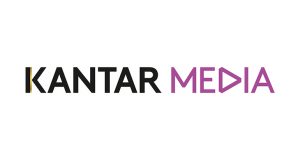 Recently, Kantar Media analyzed cost per click (CPC) in US Google search ads over the last four years with an eye toward determining the most expensive keywords. The results were not surprising.
Recently, Kantar Media analyzed cost per click (CPC) in US Google search ads over the last four years with an eye toward determining the most expensive keywords. The results were not surprising.
Keywords pertaining to mesothelioma — the cancerous tumor that is at the center of many, high-payout asbestos-related lawsuits — topped the list, with the top 10 mesothelioma keywords averaging $185.86 per click over the last four years.
To be sure, mesothelioma terms have been the most expensive Google keywords by cost per click for at least the last decade or so, since we started ranking the top keywords on Google by CPC. But, over the last 4 years, the average CPC for the Top 10 mesothelioma keywords actually declined 14% from the average cost for the top mesothelioma keywords for the full year of 2014.
While market conditions in this niche category are a likely reason for the decline, it got us wondering—how has cost per click in Google search ads changed over the last four years?
Read More: Why is Delivering Online Customer Experience Actually Harder to Measure than Anticipated
To explore that question, we analyzed average cost per click for 250 top keywords on US Google desktop and mobile text ads from October 2014 through September 2018 for each of five industry categories: retail, financial services, travel, education and health.
Overall, we found it is indeed more expensive to advertise in Google search today than it was four years ago. On average, CPCs increased nearly 23% across desktop and mobile search for all five categories from 2014 to 2018.
However, there was sizable variation between categories.
Education
The biggest increases in cost were in education, with CPCs on the 250 education keywords increasing 40% across desktop search and 62% on mobile from 2014 to 2018. The education category also had the highest average CPCs out of the five industries we studied, costing on average $18.91 per click on desktop and $13.95 per click on mobile in 2018. Paid search advertising in the education category more often than not is related to online schools, with top advertisers including for-profit colleges such as University of Phoenix, DeVry and Walden University. On average, a degree from institutions such as these can cost from $20,000 to $35,000. Hence, it makes sense that advertisers in this sector are willing to pay such high costs to acquire a prospective student.
Travel
On the opposite end of the spectrum, the travel category actually saw a decrease in desktop cost per click of nearly 17%, from $1.84 in 2014 to $1.53 in 2018, although mobile CPCs still increased on average by a healthy 24%, from $2.05 to $2.43. One possible explanation for the decrease in desktop CPC is that Google has made changes to its travel offering to help travel advertisers such as hotel chains reach consumers earlier in the travel purchase funnel, thus driving in a higher volume of consumers at a lower price.
Read More: The Top 7 Form Conversion Killers And How to Thwart Them
Health
Out of the remaining categories, health saw the lowest increase in cost per click, with CPCs rising by an average of 12.3% for desktop search and 6% for mobile search. Average CPC for the 250 keywords in the health category was $4.02 for desktop and $3.51 for mobile, which is somewhat less than we were expecting for a category with traditionally high costs for consumers. However, in analyzing the health keywords in our study, we found a preponderance of brand terms such as ‘weight watchers’, ‘aetna’ and ‘lens crafters’, which traditionally have fewer advertisers and a lower CPC than generic terms that may be more highly contested.
Retail
Retail experienced an average increase in cost per click of 20% for both desktop and mobile search during the four-year period. The retail keyword group had the lowest average cost per click of $0.70 for desktop and $1.01 for mobile, and comprised a mix of higher cost branded product keywords (iPhone) and general product terms (engagement rings), and lower cost store brand name keywords (Walmart).
Financial Services
Lastly, advertisers in the Financial Services category paid 28% more per desktop search click, averaging $4.51 in 2018, and 31% more per mobile click, averaging $4.99. The Financial Services keywords we studied comprised terms representing a variety of sub-categories, including credit cards and car insurance, and included both higher cost general terms such as ‘car insurance’ and lower CPC advertiser brand names such as Citibank.
Read More: 5 Marketing Technologies Every CMO Should Have in Their Stack
Increasing Costs Means Increased Competition for Advertisers
Beyond the obvious budgeting implications, rising CPCs in paid search can have significant meaning for advertisers. Specifically, competition may be increasing.
There are far fewer ad positions on the Google results page in 2018 than there were four years ago, as Google eliminated text ads from the right rail of the page in 2016. And mobile search has far fewer ad positions on its small screen to begin with. That means far greater competition for the remaining spots on the search results page, as advertisers naturally increase their bids in an attempt to boost their page position and secure one of the coveted spots at the top of the results page.
Changes to the SERP such as this affect all advertisers (though, as we have seen above, there is great variation within categories).
However, if you’re seeing your CPCs rising, you should not simply assume it’s due to the marketplace. Advertisers need to understand whether their rising cost per click is a phenomenon affecting all advertisers, or if there are issues specific to your own campaign or competitors that is causing the increase. Knowing this information can help you save considerable time and effort scrutinizing your campaign, keyword by keyword, when it may simply be a matter of making a case for increasing your budget.
Combating Rising Costs and Competition
Should you determine you have issues around specific keywords in your campaign, there are steps you can take.
For instance, it’s a good idea to analyze the number of advertisers sponsoring each or your keywords and pull back spend on those with the most competition while at the same time expanding your campaigns to less expensive long-tail keywords that traditionally have higher conversion rates and fewer advertisers.
Another effective way to combat increasing CPCs is to improve your quality score, since Google rewards advertisers with a high-quality score with a lower cost per click. And one of the most effective ways to raise your quality score is by improving your clickthrough rate via ad copy optimization, the process of testing new elements within your copy and measuring any lift, or drop, in CTR.
If that sounds like a lengthy process, it often is. But ad copy optimization can be expedited to a great degree by analyzing your competitors’ ads to uncover successful new ideas to try in your own, including testing different copy, promotions and ad extensions.
Of course, if your branded keywords are getting more expensive, then raising your quality score is not an option since you should already be the most relevant advertiser for your own brand name. Further, there’s nothing you can do about competitors bidding on your brand name either, since there’s no prohibition against it by Google. However, if you work with affiliates to drive traffic to your site, it’s imperative that you monitor their search campaign activity to ensure affiliates aren’t bidding up your branded keywords in violation of any agreement you may (should) have in place.
Lastly, it’s always a good idea to have a strong understanding of your own campaign effectiveness. You may not be able to stop rising costs, but you can make your spend more efficient by concentrating your budget on the keywords that are driving the most conversions while backing off of keywords that are generating expensive clicks without subsequent return.
Read More: The Future Of Video Marketing: Education And Artificial Intelligence At The Heart Of Change











